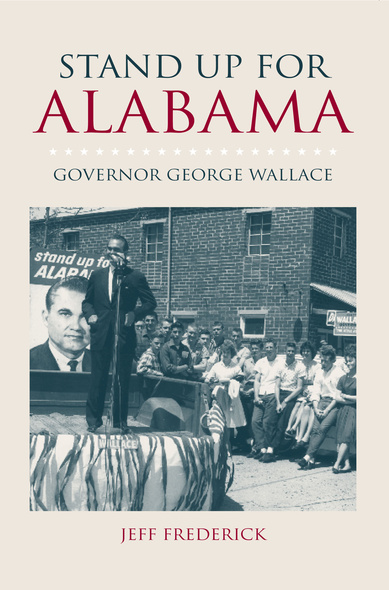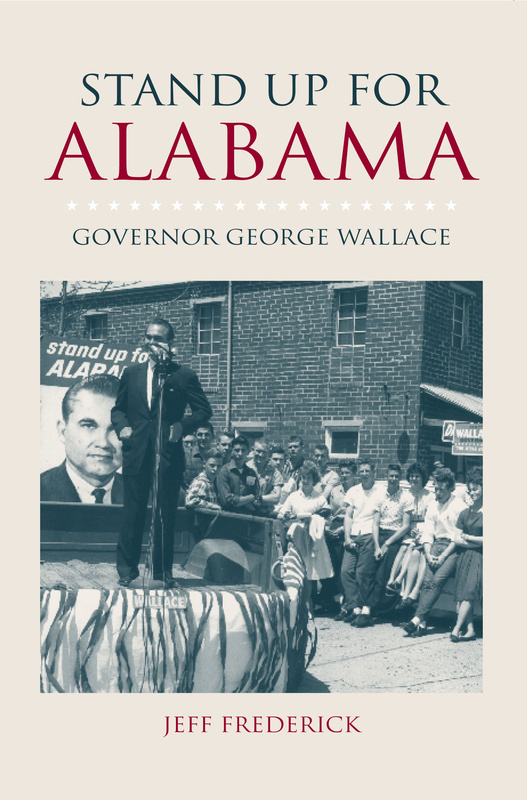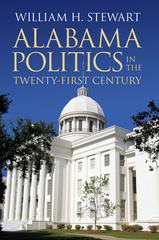Whereas other studies have focused on George Wallace’s career as a national figure, Stand Up for Alabama provides a detailed, comprehensive, and analytical study of Wallace’s political life that emphasizes his activities and their impact within the state of Alabama. Jeff Frederick answers two fundamental questions: What was George Wallace’s impact on the state of Alabama? Why did Alabamians continue to embrace him over a twenty-five year period? Using a variety of sources to document the state’s performance in areas including mental health, education, conservation, prisons, and industrial development, Frederick answers question number one. He cites comparisons between Alabama and both peer states in the South and national averages. Wallace’s policies improved the state, but only in relation to Alabama’s past, not in relation to peer states in the region or national averages. As a result, energy was expended but little progress was made.
To answer the second question, Frederick uses the words of Alabamians themselves through oral history, correspondence, letters to the editor, and other sources. Alabamians, white and eventually black, supported Wallace because race was but one of his appeals. Stand Up for Alabama shows that Wallace connected to Alabamians at a gut level, reminding them of their history and memory, championing their causes on the stump, and soothing their concerns about their place in the region and the nation.
Jeff Frederick examines the development of policy during the Wallace administrations and documents relationships with his constituents in ways that go beyond racial politics. He also analyzes the connections between Wallace’s career and Alabamians’ understanding of their history, sense of morality, and class system. “Stand up for Alabama” was the governor’s campaign slogan.
I can't imagine that anyone will ever be able to go very far beyond what Frederick has uncovered and described about the inner workings of the Wallace administration and their impact on the state of Alabama. In fact, I would go further. I don't think there is any account of a southern governor in the twentieth century that gives a clearer picture of the day-to-day operations of state governance.’
—Dan Carter, author of Politics of Rage: George Wallace, the Origins of the New Conservation, and the Transformation of American Politics
One of the great ironies of Alabama political history is that the most important and powerful governor in state history, George C. Wallace, is better known for his national political reputation, agenda, and campaigns than for his stewardship of his office. Thanks to Jeff Frederick’s meticulous research, keen analysis, and spirited writing, that is no longer so. Everyone who has tried to make sense out of Alabama politics will relish this book.’
—Wayne Flynt, author of Alabama in the Twentieth Century
Jeff Frederick is Assistant Professor of History, University of North Carolina at
Pembroke.







